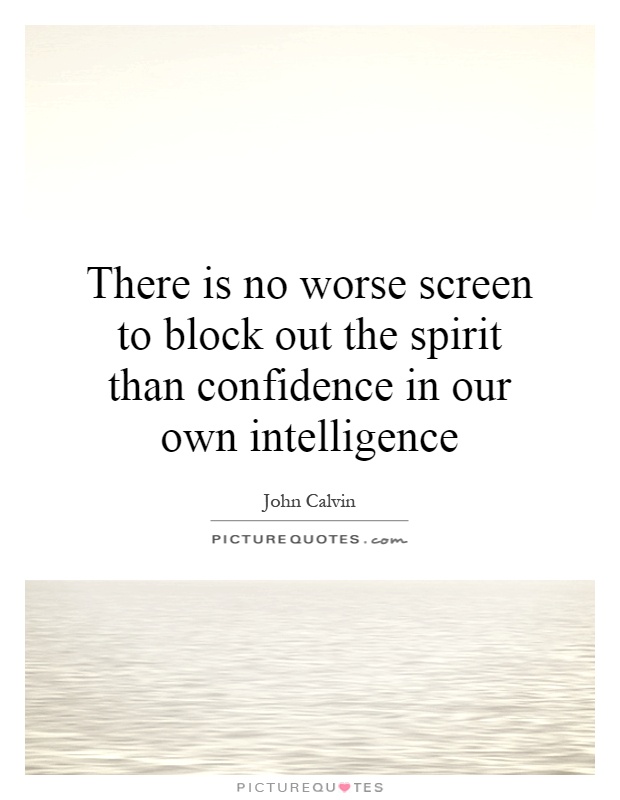There is no worse screen to block out the spirit than confidence in our own intelligence

There is no worse screen to block out the spirit than confidence in our own intelligence
John Calvin, the influential theologian and key figure in the Protestant Reformation, understood the dangers of placing too much confidence in one's own intelligence. In his writings and teachings, Calvin emphasized the importance of humility and reliance on God's wisdom rather than relying solely on human intellect.Calvin believed that human beings are inherently flawed and limited in their understanding of the world. He argued that our intelligence is finite and fallible, and that we must be cautious not to let our own knowledge and reasoning become a barrier to experiencing the true spirit of God. Calvin warned that excessive confidence in our own intelligence can lead to pride, arrogance, and a sense of self-sufficiency that separates us from God.
For Calvin, true wisdom and understanding come from a humble recognition of our own limitations and a willingness to submit to God's will. He believed that the spirit of God can only truly work in us when we are open and receptive, willing to set aside our own preconceived notions and intellectual pride. Calvin saw humility as a key virtue in the Christian life, and he encouraged his followers to cultivate a spirit of humility and dependence on God.
In his famous work, "Institutes of the Christian Religion," Calvin wrote, "There is no worse screen to block out the spirit than confidence in our own intelligence." He understood that intellectual pride can blind us to the truth of God's word and prevent us from experiencing the fullness of his grace. Calvin's teachings continue to challenge us to examine our own hearts and motives, and to strive for a deeper humility and reliance on God in all areas of our lives.












 Friendship Quotes
Friendship Quotes Love Quotes
Love Quotes Life Quotes
Life Quotes Funny Quotes
Funny Quotes Motivational Quotes
Motivational Quotes Inspirational Quotes
Inspirational Quotes